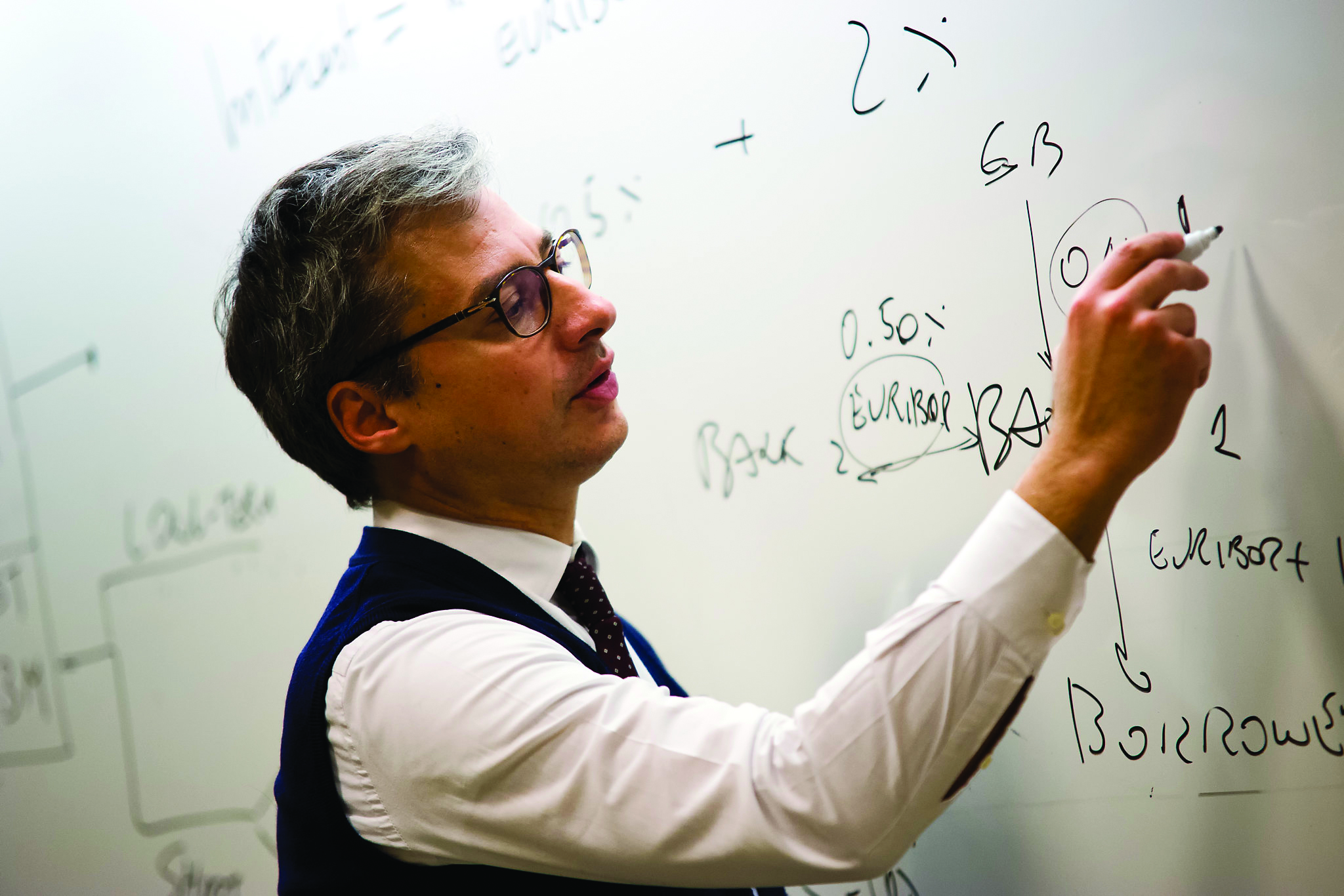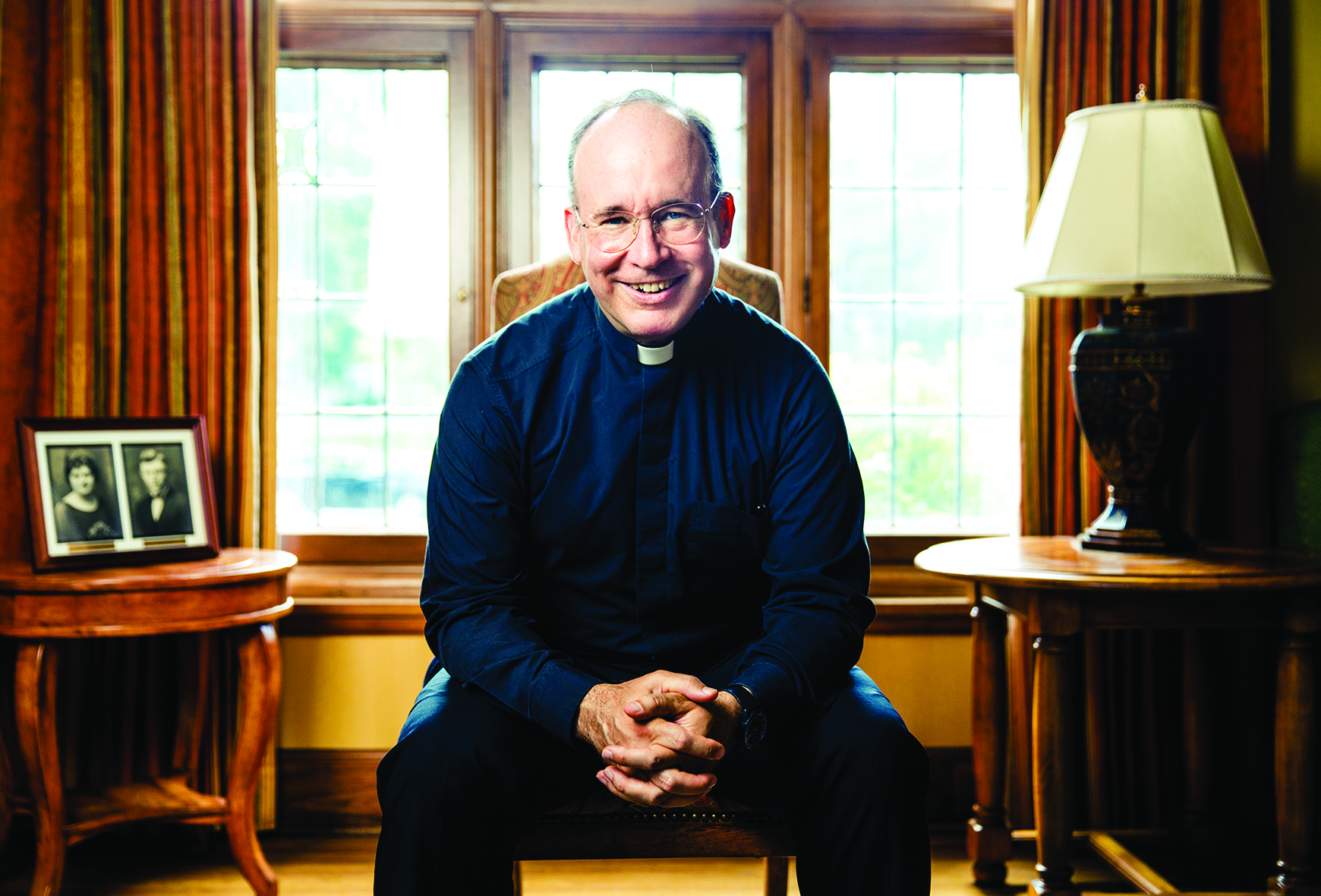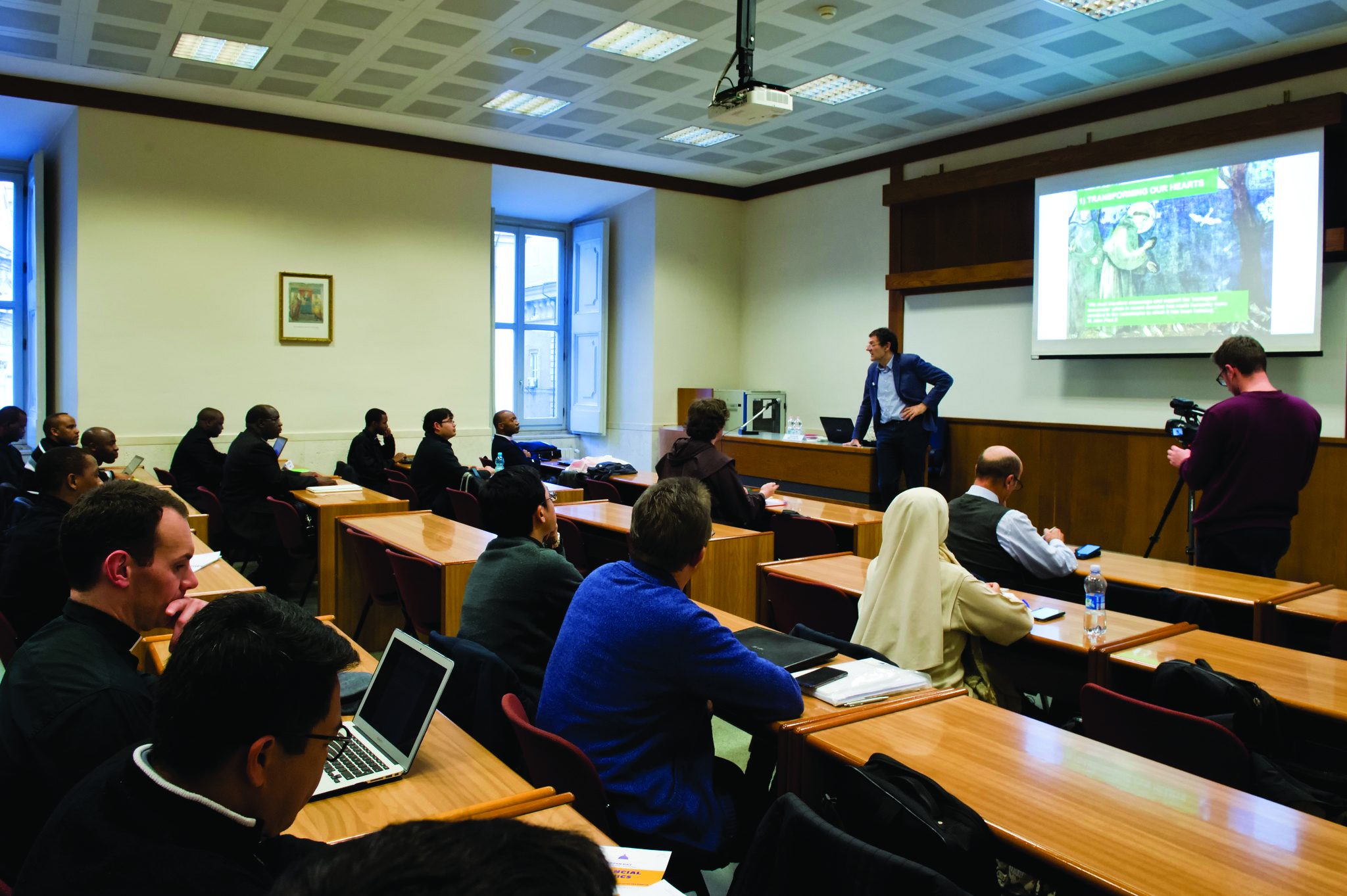Forwarding the gospel through good stewardship – this is Dr. Luca Mongelli’s vision. Mongelli is the founding academic dean and managing director for the Program for Church Management (PCM), launched February 2018 in Rome.
“The Church is the body of Christ with stigmata,” Mongelli said. “We have to love this body … We want to use money to love the church. Money is a concrete way we can love someone else.”
PCM aims to love the Church by training Church leaders in responsible stewardship of resources.

Dr. Luca Mongelli
There is a clear and urgent need for this type of training in the Catholic Church today. Many members of the clergy and other parish leaders are underequipped to face the challenge of managing parish resources. Mongelli recounts the story of a priest who was sent by his bishop to PCM to learn to manage parish funds. At his previous assignment, the priest received a donation to construct an orphanage but, because of mismanagement, had spent it on fixing the parish’s roof, against the original intent of the donors. This is not an isolated case.
“[The extent to which] the Church does not use [its] goods for loving the poor, this is a sort of stealing,” Mongelli said.

Monsignor Martin Schlag
“How can the faithful accept the Church’s teaching on business if they perceive mismanagement or financial abuse of their donations?” asked Monsignor Martin Schlag, founder of PCM and current director of the Center for Catholic Studies’ Ryan Institute for Catholic Social Thought. “The faithful have every right to expect that their money is expended according to the Gospel, the social teaching of the Catholic Church, and canon law, but also effective, efficient business practices.”
The hope of PCM is to free up priests for pastoral work by making them more effective in their parish management.
“PCM is not converting priests into managers, but helping them understand the lay experts, better control financial doings in the parish, and appropriately delegate necessary tasks,” Schlag said. He compares the PCM program to a driver’s license for keeping a parish on the right path and said “[PCM] is instrumental for the proclamation of the Gospel and the salvation of souls.”
Schlag, who currently holds the Moss Chair in Catholic Social Thought and teaches in both the College of Arts and Sciences’ Department of Catholic Studies and in the Opus School of Business, founded PCM at the request of the Vatican Secretariat for the Economy in the wake of the Vatican bank mismanagement scandals. The Ryan Institute is a program partner and the LUISS Business School in Rome, the Kellogg School of Management at Northwestern University, and the Catholic University of America (CUA) in Washington, D.C., helped create the PCM curriculum. Schlag teaches in the program as do professors from LUISS and CUA.
The program offers church management courses in a time frame that accommodates the busy lives of students. Unlike secular business schools where students learn to create wealth and build businesses, PCM focuses on how to serve the poor effectively and use the material assets of the Catholic Church honestly. Courses in management, economics, finance, business ethics and social teaching are offered to laity, priests, seminarians and religious alike in the hope that this instruction will enable leaders in every area of the Catholic Church to manage temporal assets honestly, wisely, and in accordance with canon law and Catholic social teaching.
Schlag is working with the St. Thomas E-Learning and Research (STELAR) center to develop an online module on Catholic social teaching for the PCM. The hope is that the module will eventually be available through the St. Thomas Continuing and Professional Education (CAPE) course offerings as a stand-alone tutorial for laypeople involved with parish finances.
Since PCM is a global program, many of the participating priests, laity and religious come from low-income or underdeveloped countries. Practical strategies offered in the PCM courses help church leaders from these areas address current issues facing the Church in their countries. For example, Father Jorge Avilés Wong from Ecuador spent his PCM capstone project developing a plan to establish Farms of Hope aimed to help Ecuadorian youth facing drug addictions who are in the rehabilitation process. Avilés Wong praised the PCM for helping him develop “not only a spiritual approach, but also an economic and managerial approach” to this problem in his diocese. He said that it is helping him “plan how to make the project self-sustaining with regard to the material resources used in the project.”
Father Lawrence Sakubita Like, a Missionary Oblate of Mary Immaculate from Zambia, researched concrete steps his order can take to address the dwindling number of vocations. These improvements are only a few of the early fruits of PCM. The eventual aim is to train thousands of church leaders around the world to build more resourceful, responsible parishes in their own backyard, while doing their part to renew the universal Body of Christ.







